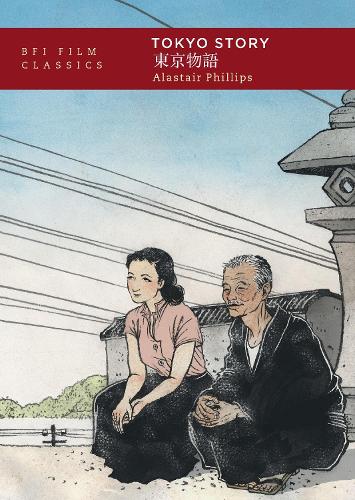
Tokyo Story
(Paperback)
Publishing Details
Tokyo Story
By (Author) Alastair Phillips
Bloomsbury Publishing PLC
BFI Publishing
29th December 2022
United Kingdom
Classifications
General
Non Fiction
Film history, theory or criticism
Performing arts genres: Drama
791.4372
Physical Properties
Paperback
112
Width 134mm, Height 188mm, Spine 8mm
181g
Description
This BFI Film Classics study of Tokyo Monogatari/Tokyo Story (1953) reveals the making, meaning and legacy behind Ozu Yasujiros masterpiece. Ozu's moving family drama is universally acknowledged as one of the most significant Japanese films ever made. In its complex portrait of human motivation and lively sense of social space, it offers a profound and poignant insight into the generational shifts of post-war Japan. Alastair Phillips provides an in-depth analysis of the film and its key locations - the city of Tokyo, the town of Onomichi and the coastal resort of Atami - with a discussion of its representation of Japanese society at a time of great cultural change. Drawing upon Japanese and English language sources, he situates the film within various contemporary critical and industrial contexts and examines the multiple international dimensions of Tokyo Story's long after-life to understand its enormous contribution to global film culture.
Reviews
Generations the world over have pondered the complex beauty of Tokyo Story. Alastair Phillips pulls back the veil of awe that has come to surround the film over the years to reveal the making, meaning, and legacy of Ozus masterpiece. -- Michael Crandol, author of Ghost in the Well: The Hidden History of Horror Films in Japan
This is Alastair Phillipss personal and professional cinematic journey from Tokyo to Onomichi. In this concise BFI volume, Phillips provides a detailed textual, socio-historical, and biographical analysis on Ozu Yasujiro and his masterwork. -- Daisuke Miyao, University of California, San Diego, USA
Author Bio
Alastair Phillips is Professor of Film Studies at the University of Warwick, UK. He is the co-editor (with Hideaki Fujiki) of The Japanese Cinema Book (BFI, 2020) and Japanese Cinema: Texts and Contexts (2007) (with Julian Stringer). He is an editor of Screen.
